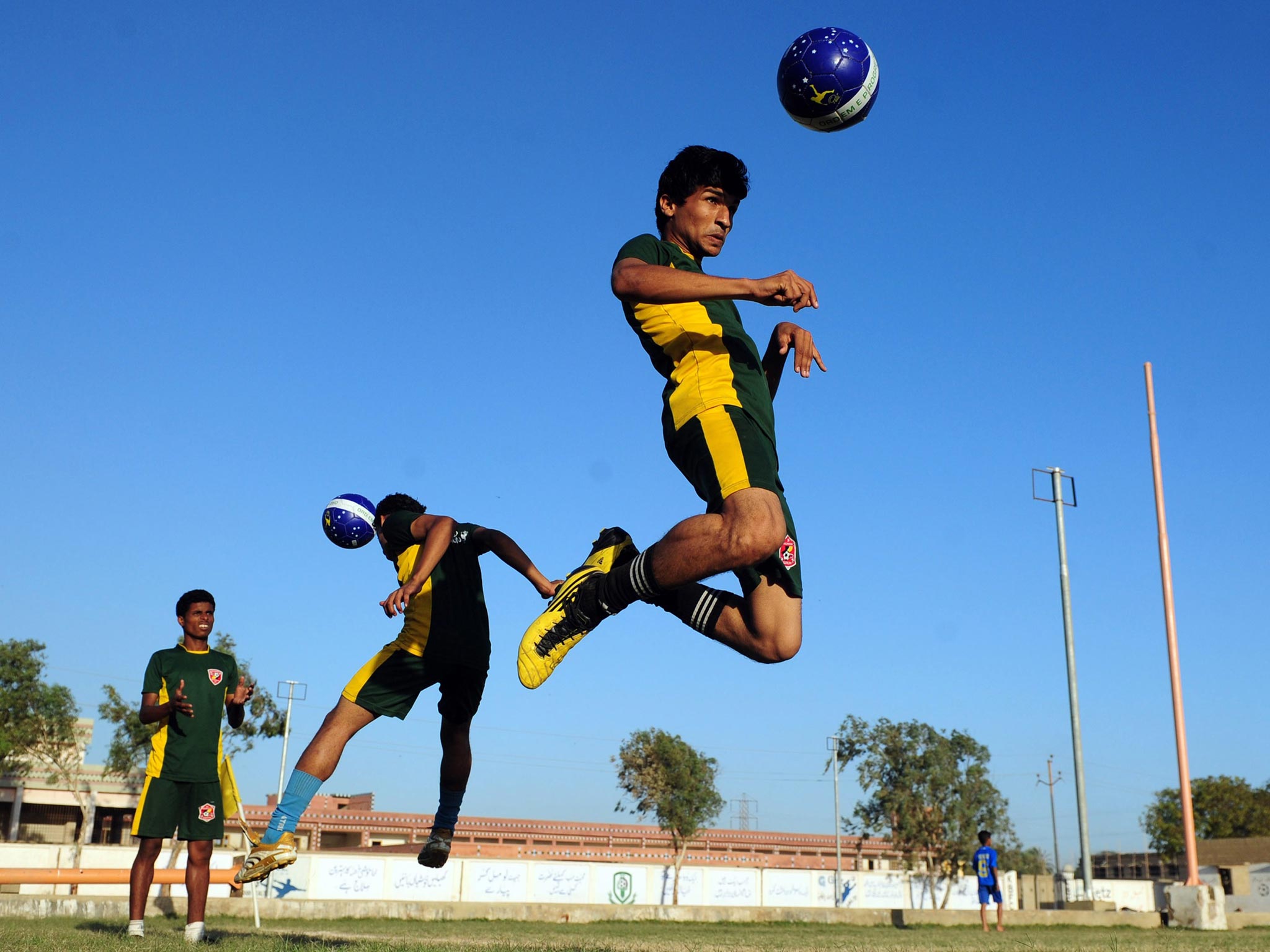Taking it to the Street: World Cup to help children kicks off in Brazil
Brazil plays host to pioneering global tournament for ‘street kids’

While Brazil and Fifa continue to fret over late stadiums and spiralling World Cup costs, another kind of football tournament, far removed from the sleek corporate world of Sepp Blatter and Co, kicks off in Rio de Janeiro this Sunday.
The Street Child World Cup brings together teams of young people from a variety of countries, ranging from the desperately poor (Burundi and Liberia) to the comparatively wealthy (the UK and US), to raise awareness of the plight of the millions of children across the world who are forced to sleep rough every night. All the players taking part have spent at least some of their lives living on the streets.
The aim of the event, which features a girls and a boys tournament and is supported by football greats such as Pele, David Beckham and Gary Lineker, is encapsulated by its slogan “I Am Somebody”. The idea behind the project is to give the children a voice and allow them to speak for themselves about the issues that affect their lives.
“One of the biggest challenges these children face is the stigma that goes with living on the streets. They are treated as subhuman, as outcasts from society,” explains Joe Hewitt, head of SCWC’s Brazil office. “One of our key aims is to challenge the negative perceptions and treatment of these kids, to give them a platform to be seen as children.”
The location of this year’s Street Child World Cup gives the event added relevance. Despite considerable progress having been made in recent years, millions of Brazilians still live below the poverty line, and the basic social infrastructure is frequently inadequate. There have been few World Cups where the wisdom of spending large amounts of public money on football stadiums has been so bitterly debated.
In a country notorious for its social inequality, there can be no starker example of the problems that the SCWC hopes to highlight than the tragic death of a member of the Brazil team last month.
“It sounds like something from a film script, but Rodrigo Kelton really was our best player,” says Manoel Torquato, a coordinator at O Pequeno Nazareno, the care home and support centre that is home to Team Brazil. “We hired a professional coach to train the players for the World Cup, and he said that Rodrigo could have had a real future in the game.”
No longer. On 13 February, 14-year-old Rodrigo was shot and killed by drug traffickers near his family home in Fortaleza, a World Cup host city and one of the biggest urban centres in the north-east of Brazil, the country’s poorest region. His murder was allegedly punishment for a robbery that he committed a number of years before, and ironically came at a time when Rodrigo had stopped using drugs and was instead dedicating his time to playing football at O Pequeno Nazareno.
Rodrigo had drifted on to the streets when his parents’ own drug addiction made remaining at home difficult. It is one of a number of reasons why Brazilian children end up in such situations, according to Torquato. “Many come from poor families where the mother sends them out to beg, and if they don’t come home with enough money, they get beaten. So instead of going home they spend the night on the streets. Or perhaps they get caught stealing money, or shoplifting, so they can buy marijuana. The kids say there are illegal death squads of retired or moonlighting cops operating in the city. So they run away because they’re scared.”
To raise awareness of such issues, the Street Child World Cup organisers plan to join forces with other Brazilian pressure groups for an event at Candelaria Cathedral in Rio de Janeiro, where eight young homeless people were murdered by the police in 1993.
The remaining members of Team Brazil will not forget Rodrigo. But nor can they contain their excitement about the prospect of playing in the Street Child World Cup. “I don’t think they’ve slept since they heard the news that they’re going to Rio. Most of them have never left Fortaleza, let alone the state,” says Torquato.
He, and the SCWC organisers, hope that the global influence of football can make a difference to the lives of these boys and girls.
“Football is everything here,” Torquato says. “When we go out into the streets to talk to the homeless children, we take an album of photos of our centre with us. The photos that they get most excited about are the ones of the food in the kitchen, and the ones of the boys playing football.”
Join our commenting forum
Join thought-provoking conversations, follow other Independent readers and see their replies
Comments